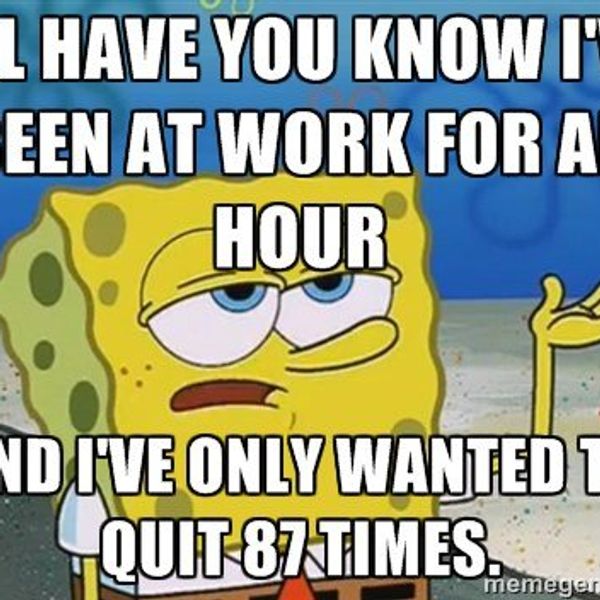Connecticut’s tax-free week has become a back-to-school shopping tradition for ‘nutmeggers.’ In fact, the tax-free holiday began in 2000 (16 years ago)—and shoppers have never looked back.
In one retail store, it is their most profitable and next busiest week to the Black-Friday holiday weekend craze.
Many argue that tax-free week is intended to save consumers money. However, contrary to the mainstream thought—tax-free week may not be as “amazing” as politicians, news outlets and shoppers make it out to be.
And here’s eight reasons why the latter statement is true:
1. Tax-Free Week Is Full of Stipulations
It’s sad to say, but after working in retail (and specifically during tax-free week) for six-years, most people don’t understand that tax-free week does not mean everything is tax-free during this one particular week.
Connecticut lays out clear stipulations as to what and how much can/cannot be taxed—and a fair share of shoppers who think they’re saving big bucks on, say, large purchases, aren’t. For example, certain individual items of clothing and footwear that are priced under $100 are tax-exempt. Items that are not on Connecticut’s approved list and valued over $100 are still taxed, leaving many consumers shocked and upset at the point-of-sale.
2. You’re Really Not Saving a Lot
Most importantly, consider how much you are saving: not a lot. At the bare-minimum, you are saving Connecticut’s sales-tax rate: 6.35 percent. All stipulations considered, minimally you could save $6.35 on a $100 purchase because of tax-free week. Any additional savings incurred is thanks to the store you’re shopping at, not Connecticut’s sales-tax holiday.
3. Oh… You Thought There Were Sales?
Retailers have caught on—and they know shoppers are coming, regardless of if they have a sale or not. “Tax-free” is the only buzz-word consumers need to hear to get their wallets through retailers’ doors.
Thus, the incentives for stores to roll-out deep discounts are slim-to-none. If people are going to come to their store anyway, why would retailers sell items at a cheaper price when they could sell it at full-price?
Consumers still leave feeling like they “saved” because it’s tax free week and retailers score because they can sell items at full-price. Win-win, right? Not.
Here’s a quick “case-study” I did from my recent personal shopping experience: I went into one retail store the weekend before tax-free week started. The sale included 20 percent off all apparel and clearance footwear. During the weekdays of tax-free week? Absolutely no additional sales.
4. Lack of Proof That You Actually Save
According to a quick Google search of mine, there are actually no studies done on how much consumers actually save during Connecticut’s tax-free week. However, there are tons of news articles and politicians championing how great and financial-savvy tax-free week is. But, despite the no tax, consumers may actually be paying more for products because of the lack of store-sales and research that proves consumers actually save more money, other than tax, during tax-free week.
5. The Type of People Who Shop Tax-Free Week
In short, they’re cheap and stingy. Elaborately, it’s a mixed bag of families, young adults and parents hoping to save a buck. They’ll argue with the cashier until the price of their item is the lowest they can get it. They’ll push and shove other consumers to get the products they want. And lastly, they’ll leave the largest messes for store employees to clean up.
6. People, People and More People
Thousands rush to the malls for this week. You’re competing for parking spots, sizes and places in numerous lines in nearly every corner you turn. If you don’t have patience to deal with large crowds, then the 6.35 percent should not be worth it to you.
7. Retail Workers Do Not Get Paid More During This Dreaded Week
Retail workers dread this week. They have to leave extra early to find a parking spot, stay later (i.e. 10 pm – 7 am) and work longer just to recover the store and make it look presentable for the next day.
Absolutely no additional incentives are handed to these employees. They’re paid the same rate, just like any other week of the year, to work insane hours and slave-away folding t-shirts and cleaning up messes at 2 am, all for a “grand-opening” appeal upon the start of a new business day.
8. What It All Comes Down to: Do You Really Need It?
Great. It’s back to school and I completely understand you—or the kids—want to have a fresh pair of kicks and a cool-new outfit for the first day of school. But, consider this: is the beginning of school/end of summer really a time to buy dead-of-winter hoodies and sweatpants? Do you or your children really need all new clothes just for a new beginning or can it wait until the crowds die down and, perhaps, the sale/savings are better? Black-Friday is only about three months away; in other words, major savings are ahead.
Disclaimer: My views do not represent the views of any company I have worked for, including past, present or future employers.





















